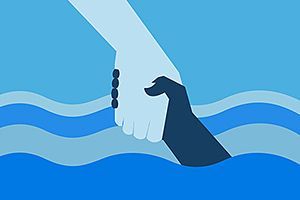The most important relationship I seek to nurture in the treatment room is the one a patient has with their own body. We live in a culture that teaches us to override pain, defer to outside authority, and push through discomfort. Patients often arrive hoping I can “fix” them, but the truth is, we can’t do the work for them. We can offer guidance, insight and support, but healing requires their full participation.
COVID-19 Relief: Big Help for Small-Business Owners
The CARES (Coronavirus Aid, Relief and Economic Security) Act gives small-business owners a number of important tools, perhaps the most important of which is low-interest, potentially forgivable loans to cover payroll and other practice costs including rent and utilities. Here's how it will work, according to the U.S. Chamber of Commerce:
Who's Eligible?
- Any small business with fewer than 500 employees
- Any small business that otherwise meets the Small Business Association's size standard
- A 501(c)(3) with fewer than 500 employees
- Sole proprietors
- Independent contractors
- Self-employed individuals who regularly carry on any trade or business

How Much Can You Borrow?
- For Employers: Any compensation with respect to employees that is a salary, wage, commission, or similar compensation; payment of cash tip or equivalent; payment for vacation, parental, family, medical, or sick leave; allowance for dismissal or separation; payment required for the provisions of group health care benefits,including insurance premiums; payment of any retirement benefit; and payment of state or local tax assessed on the compensation of the employee.
- For Sole Proprietors, Independent Contractors, and Self-Employed: Any compensation to or income of a sole proprietor or independent contractor that is a wage, commission, income, net earnings from self-employment, or similar compensation and that is in an amount that is not more than $100,000 for the covered period.
Will The Loan Be Forgiven?
A borrower is eligible for loan forgiveness equal to the amount the borrower spent on payroll costs during the eight-week period beginning on the date of the origination of the loan (using the same definition of payroll costs used to determine loan eligibility).
What If I Don't Have Any Employees / Payroll?
The forgivable element of the loan program covers other costs normally incurred by a small-business owner, even if you do not have any employees /staff. According to the U.S. Chamber of Commerce, borrowers are eligible for loan forgiveness equal to these costs during the eight-week period as well:
- Interest on mortgage incurred during the ordinary course of business
- Rent on a leasing agreement
- Payments on utilities (electricity, gas, water, transportation, telephone, or internet)
Could Anything Reduce the Amount Forgiven?
Actually, yes. The amount of the loan eligible for forgiveness will be reduced if there is any reduction in the number of employees or a reduction of greater than 25 percent in wages paid to employees. However, note that if you have already let an employee go or reduced wages beyond 25 percent, you can "regain" eligibility for payroll loan forgiveness if you rehire the employee / reinstitute their pay:
"Reductions in employment or wages that occur during the period beginning on February 15, 2020, and ending 30 days after enactment of the CARES Act (as compared to February 15, 2020) shall not reduce the amount of loan forgiveness IF by June 30, 2020 the borrower eliminates the reduction in employees or reduction in wages."
What Is Loan Forgiveness?
You do not have to pay for the loan amount used for costs stipulated above. In other words, if you borrow $100,000 and use it for payroll costs, practice rent and utilities, etc., during the eight-week period following loan origination, the entire $100,000 is forgiven, except for interest accrued. Get more information and apply at www.SBA.gov/disaster.



